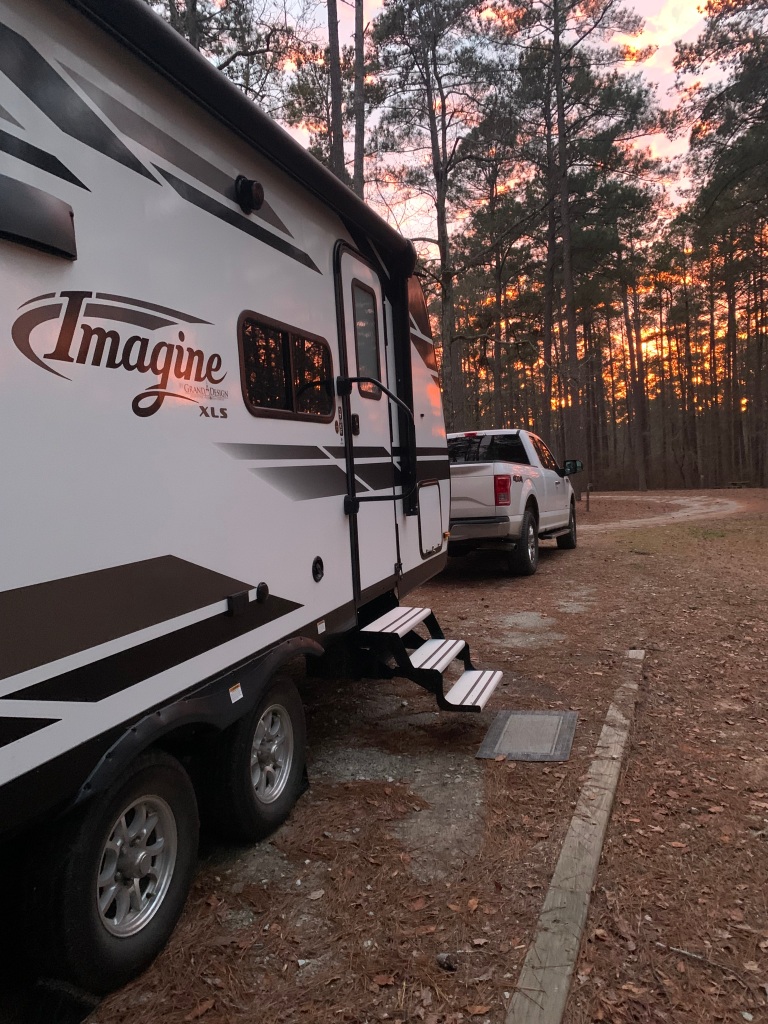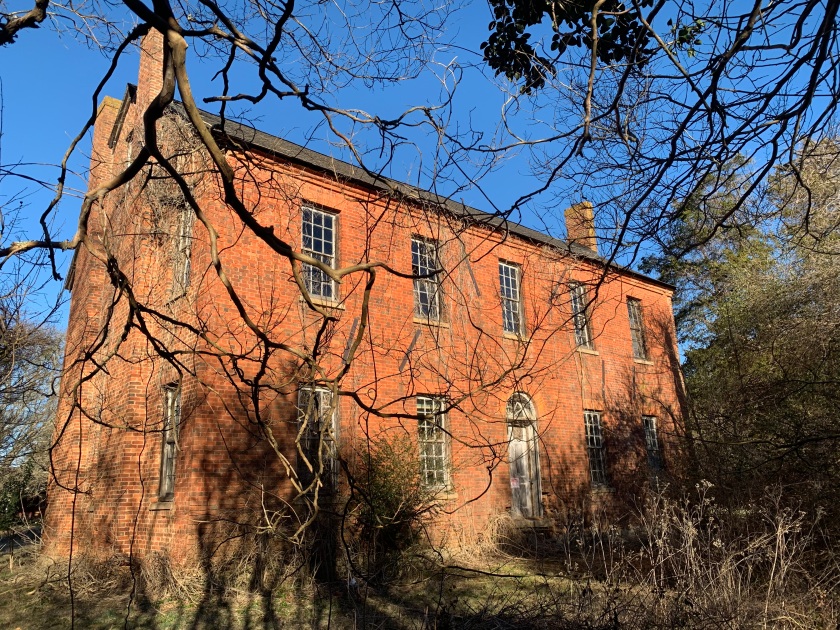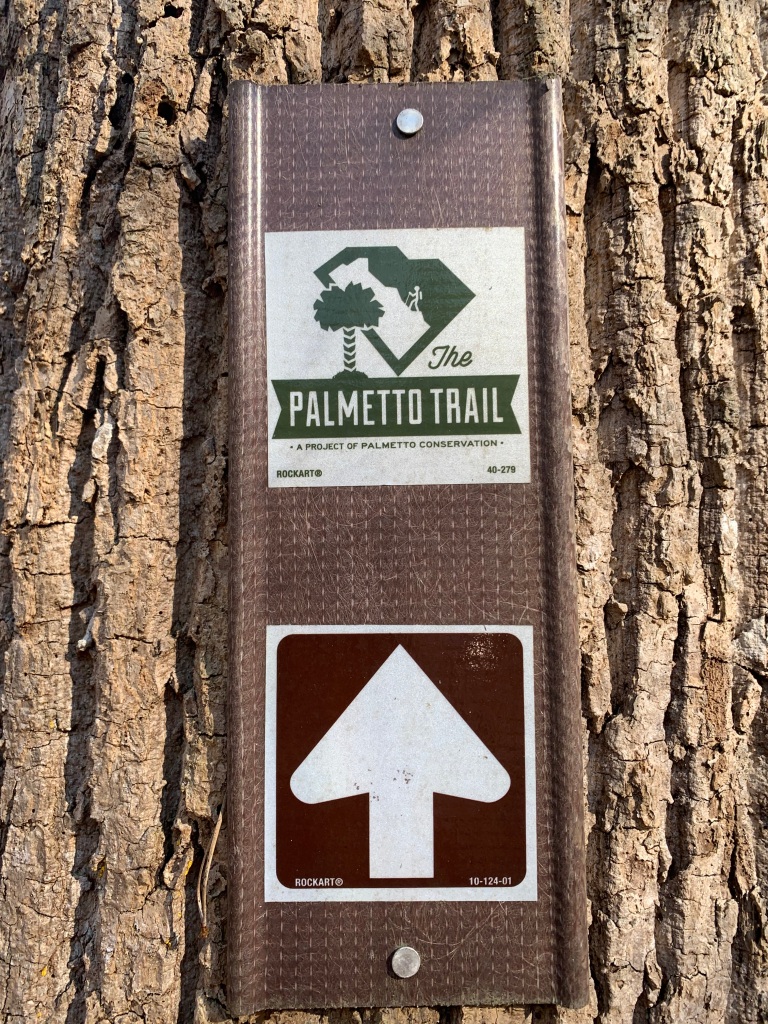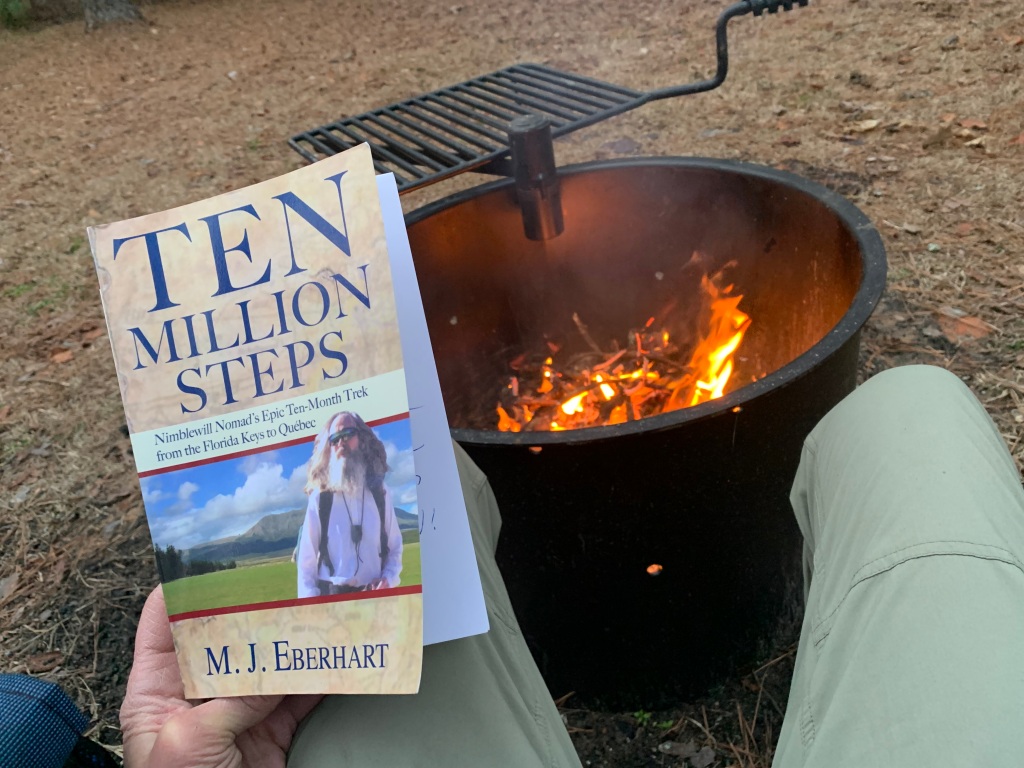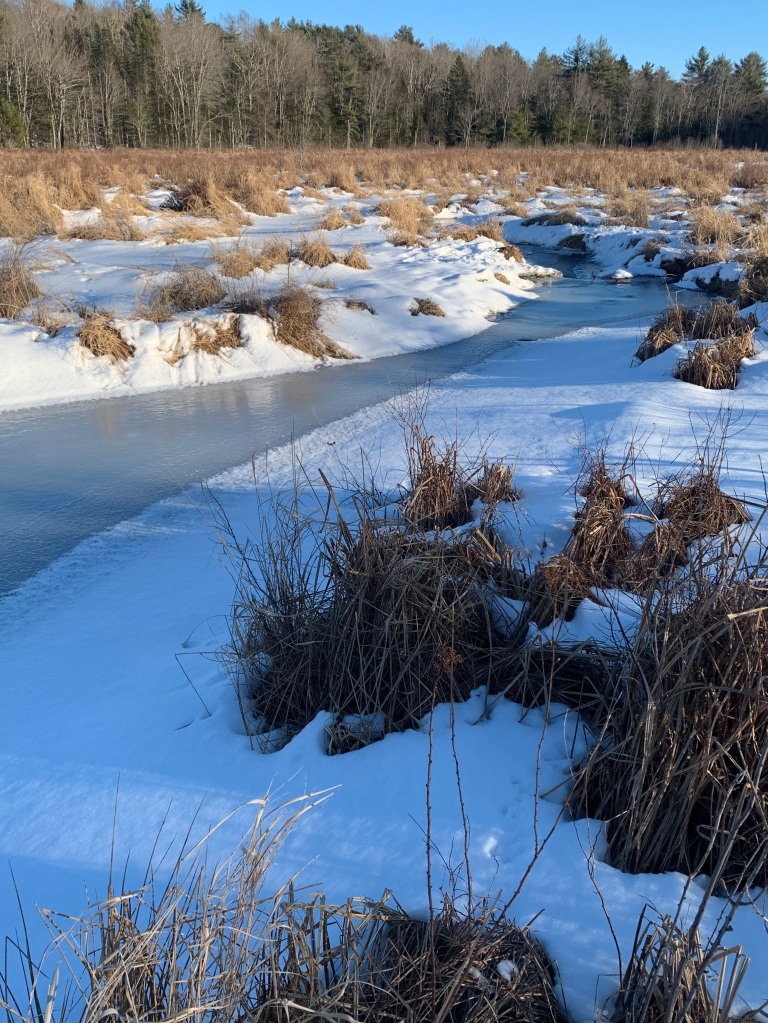
The people of South Carolina were warm and friendly, helpful and welcoming, but they were also few and far between. The trail angel prize goes to an empathetic guy at a local YMCA, who must have sensed my desperation over the phone. Although there was no day pass option there, he generously offered to let me shower if I showed up before his shift ended. The copious hot water was the best! The congregation at the Fairview Baptist Church, several propane tank fillers, a waitress, and a highway worker ensuring I wasn’t lost rounded out the list of human contact for an entire week. (Unfortunately, the highway worker did not appear on the occasion that I was actually lost).
Consequently, the young man who cruised into the Brick House Campground on Sunday afternoon was a welcome visitor. His question about my solar setup soon evolved into a lengthy chat covering everything from local seafood specialties to the benefits of solitude. When I asked if he did any fishing (still thinking about those giant catfish), he recommended a visit to Macedonia Lake. This small waterbody, located about seventeen miles north of the campground along the Palmetto Trail, is also accessible by road.

As I was planning this winter’s journey, I thought a lot about how to interact with communities along the way. One thought was to participate in some community service events. I almost connected with one at the Fairview Baptist Church. They had an ambitious Brunswick stew fundraiser coming up, but I would be already gone when the day came to peel all those potatoes.
At Macedonia Lake, I discovered a project just as beneficial.

So, let’s talk trash…garbage, refuse, litter. With special emphasis on bottles, cans, fishing line, foam cups, bait containers, bobbers, and empty chip bags. Although cleanup crews are making a valiant effort along the highways of the South, the amount of trash in the water is appalling. It makes me sad, and also reinforces my gratitude for the cleanliness of our northern waters. At home, I might snag one wayward beer can or water bottle in hours of canoeing.
In the south, the sheer volume of trash I had seen so far was overwhelming. Macedonia Lake was no exception. After cruising the shoreline (a quarter hour of slow paddling) and sitting for a while to listen for birds, it didn’t seem like much of an accomplishment. Until I thought of trying to pick up all the trash that I could reach from the kayak, counting items as I went. Luckily, I found a trash bag and plastic gloves in my pickup.

I did not by any means get all the trash. Despite some tight maneuvering and teasing bottles and cans towards me with the paddle, I left a fair amount behind. Plus, the far shore had its own boat ramp peppered with trash that I did not have room for in the kayak. My count stood at 45 items when I’d made the shoreline circuit once again. Some bottles had obviously been there for years. Long enough for countless people to have done what I was doing. To round out the day, I gathered more than 55 more items from the boat ramp area in just a few minutes. What were people thinking?
A week later, at the Georgia Sea Turtle Center on Jekyll Island, a display would remind me of the time it would take for some of this trash to degrade: monofilament fishing line (600 years), the wine bottle I found floating in the lake (undetermined), foam cups (50 years), plastic bottles (450 years), and aluminum cans (80 to 200 years).
Usually, I try to end my posts with a pretty picture or a positive thought. Today, I just want to encourage each and every person who sees trash like this to pick up some of it. Simply that. Leave our natural world cleaner than you found it.

